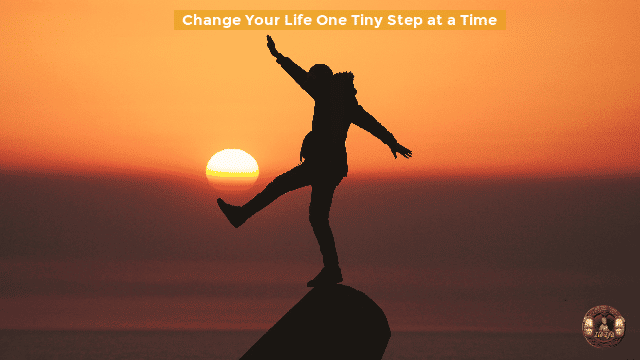Instead of trying to control your emotions, what if the real key is in embracing them? Your emotions are a profound source of guidance and information1. When you focus on regulating them, you might resist their wisdom. This can disconnect you from yourself and make your emotions seem like enemies.
Emotions aren’t the problem—it’s resisting them and needing them to not exist that causes real suffering.
Emotional regulation is key to mental well-being, helping you handle life’s ups and downs with balance1. But, managing emotions can be tough for many, leading to distress and dysfunction1. Luckily, there are skills and strategies to master emotional regulation and live a more fulfilling life. This article will share practical tips and techniques to help you manage your emotions effectively.
Key Takeaways
- Emotional regulation is a learned skill and a crucial aspect of emotional intelligence.
- Challenges in emotional regulation can arise when reactions are considered out of proportion or socially inappropriate.
- Regular mindfulness practices can improve emotional regulation skills.
- Physical activity can support stress management and emotional well-being.
- Difficulty managing emotions can pose challenges to individuals and those around them.
Understanding the Importance of Emotional Regulation
Emotional regulation isn’t about hiding our feelings. It’s about learning to handle them well. This skill helps us deal with life’s ups and downs more smoothly. By grasping what emotional regulation means, we can grow and feel better.
Defining Emotional Regulation
Emotional regulation means knowing and managing our emotions well. It’s about being in touch with our feelings, knowing why we feel that way, and choosing how to show or handle them.2 It’s a skill we build over time as we learn to handle our emotions.
The Impact of Emotions on Daily Life
Our emotions shape our daily choices, relationships, and happiness2. Struggling to manage our emotions can lead to unhealthy habits like substance abuse2. But, learning to regulate our emotions helps us deal with stress, talk better, and make choices that reflect our values.
| Emotion Regulation Strategy | Impact on Emotions |
|---|---|
| Cognitive Reappraisal | Reframes emotionally triggering situations to alter their emotional impact2. |
| Mindfulness | Changes how a person relates and responds to emotions2. |
| Emotion Suppression | Can lead to more pain in the long term2. |
By understanding emotional regulation, we can improve our lives2. Getting help from experts can help us become more aware and skilled in managing our emotions2.
Identifying Personal Emotional Triggers
Instead of trying to control your emotions, what if the real key is in embracing them? Your emotions are a profound source of guidance and information. When you focus on regulating them, you risk resisting that wisdom. This can disconnect you from yourself and turn your emotions into the enemy.
Emotions aren’t the problem—it’s resisting them and needing them to not exist that causes real suffering.
Common Emotional Triggers
Individuals may have multiple emotional triggers or different types of triggers3. Anxiety triggers are rooted in panic and stress, often coinciding with anxiety disorders3. Trauma triggers are associated with post-traumatic stress and can lead to avoidance behaviors3. Anger triggers cause individuals to be irrationally angry about a situation or object3.
Triggers can elicit an intense or unexpected emotional response, causing individuals to relive past trauma or experiences4. Common types of emotional triggers include past trauma, negative memories, fear, stressful situations, relationship issues, loss or grief, and significant life changes4.
Recognizing Your Unique Triggers
Identifying triggers can be complex and may require multiple attempts3. Triggers form as the brain connects the fight-or-flight response to trauma reminders like specific stimuli (sounds, smells, places, or people)4. Factors contributing to emotional triggers include past experiences, personality traits, coping mechanisms, mental health conditions, genetics, and environmental factors4.
Emotional triggers can vary from person to person, but common types individuals often encounter in relationships include abandonment, rejection, criticism, betrayal, and loss5. Identifying personal emotional triggers requires self-reflection and introspection5.
Physiological manifestations of emotional triggers include increased heart rate, rapid breathing, sweating, muscle tension, gastrointestinal discomfort, and dizziness5. Emotional triggers not only impact emotional state but also manifest physiologically in the body5. Seeking professional mental health care can assist in identifying and managing triggers3.
“When you start to feel triggered, pause and ask yourself, ‘What is this teaching me about myself?'”
Recognizing triggers involves observing sudden feelings of anxiety or overwhelm, recurring concerns, inability to calm down, and outsized emotional reactions4. Addressing emotional triggers is crucial for promoting healthier relationship dynamics5. Self-awareness and self-reflection are foundational in managing emotional triggers5.
Cultivating Mindfulness for Emotional Stability
Instead of trying to control your emotions, what if the real key is in embracing them? Your emotions are a profound source of guidance and information. When you focus on regulating them, you risk resisting that wisdom. This can disconnect you from yourself and turn your emotions into the enemy.
Emotions aren’t the problem—it’s resisting them and needing them to not exist that causes real suffering.
What Is Mindfulness?
Mindfulness means being fully focused on the present moment, observing your thoughts and feelings without judgment. Practicing mindfulness regularly can cultivate a sense of calm and clarity, making it easier to regulate your emotions when faced with challenges.6
Mindfulness Exercises for Emotional Regulation
Mindfulness techniques, such as deep breathing, meditation, and body scans, can help you stay grounded in the present moment. Research has shown that practicing mindfulness can lead to changes in the brain that enhance emotional regulation.6 Regular mindfulness practice can increase the size and activity of the prefrontal cortex, a brain region responsible for executive functions and emotional regulation.6 Mindfulness has been found to reduce activity in the amygdala, the brain’s fear center, which plays a key role in processing emotions such as fear and anxiety.6 Mindfulness has been shown to increase neuroplasticity, the brain’s ability to reorganize and form new neural connections, which can lead to changes in emotional regulation.6
- Mindfulness has been found to reduce levels of stress and anxiety, helping individuals break free from worry and rumination.6
- Mindfulness can enhance relationships by fostering empathy, understanding, and effective communication.6
- Mindfulness practices like loving-kindness meditation and body scan meditation can help regulate emotions and promote overall well-being.6
- Mindfulness can improve focus, creativity, and decision-making skills in a professional setting, enhancing performance and satisfaction in the workplace.6
“Mindfulness is about being fully awake in our lives. It is about perceiving the exquisite vividness of each moment. We also gain immediate access to our own powerful inner resources for insight, transformation, and healing.”
– Jon Kabat-Zinn
Recent studies show a surge in depression rates among young adults.7 Mindfulness practices have been shown to reduce workplace stress and burnout.7 Mindfulness-based stress reduction programs have decreased academic anxiety and improved performance among students.7 Mindfulness can enhance focus and productivity in the workplace.7 Mindfulness meditation can interrupt depressive thoughts and provide emotional balance for young adults.7
Research has shown that mindfulness can be an effective tool for managing stress, anxiety, depression, and other emotional issues.8 Mindfulness can improve executive function skills, such as attention, working memory, and cognitive flexibility.8 Mindfulness-based techniques can be effective for managing emotional dysregulation, especially in conditions like ADHD, anxiety, autism, and depression.8 Mindfulness practices can improve resilience, which refers to the capacity to adapt positively and effectively in the face of adversity, trauma, or stress.8 Mindfulness encourages a non-judgmental attitude, fostering a more positive and optimistic outlook.8 Mindfulness practice enhances problem-solving skills by allowing individuals to think more clearly and creatively.8 Mindfulness enhances emotional regulation, self-awareness, acceptance of impermanence, reduced reactivity, positive mindsets, and problem-solving skills.8 By incorporating mindfulness into daily life, individuals can develop coping mechanisms to navigate life’s challenges with greater ease and resilience.8
Techniques for Managing Strong Emotions in High-Pressure Situations

When you face tough situations, knowing how to manage your emotions is key. These skills help you control your feelings and avoid bigger problems. This leads to better results9. Learning to manage your emotions takes time, but it’s worth it9.
Deep breathing exercises are a great tool10. 75% of people find grounding techniques helpful for managing emotions10. Slow, deep breaths can calm you down and help you stay composed. It’s also important to accept your emotions without judgment910.
Positive self-talk is another powerful strategy10. 80% of people find that improving emotional regulation skills boosts confidence and happiness10. Reminding yourself of your strengths can help you handle tough emotions. Quick mindfulness exercises, like focusing on your senses, can also help you reset.
Remember, your emotions are not the problem. It’s fighting them that causes pain9. By accepting and managing your feelings with kindness, you can find your inner strength. This way, you can thrive, even when things get tough910.
Building Resilience through Emotional Self-regulation
Your emotions guide and inform you deeply11. Trying to control them can make you resist their wisdom, disconnect from yourself, and see them as enemies11. It’s not the emotions that cause suffering, but fighting them and needing them to disappear.
Defining Resilience
Resilience is about handling stress and tough times without breaking down12. It’s about facing challenges head-on and growing stronger from them, not avoiding them12. Learning to manage your emotions is key to bouncing back from hard times and becoming more resilient12.
Strategies to Build Emotional Resilience
To build emotional resilience, you need to understand and manage your feelings12. Here are some strategies:
- Maintaining a positive outlook
- Building connections with others
- Practicing mindfulness
- Taking care of yourself through self-care activities
12 Activities like mindfulness and exercise help improve emotional control12. Getting support from friends, family, or mental health experts also boosts emotional resilience12.
Being able to stay calm with uncomfortable feelings helps build emotional control12. Negative thoughts can hurt emotional control, so it’s important to challenge them12.
13 A study with 251 teens aged 14 to 19 found that emotional regulation and resilience are linked13. The study showed that emotional regulation helps build resilience13.
| Strategies to Build Emotional Resilience | Benefits |
|---|---|
| Maintaining a positive outlook | Helps cope with stress and adversity more effectively |
| Building connections with others | Provides social support and a sense of belonging |
| Practicing mindfulness | Enhances emotional regulation and stress management |
| Taking care of yourself through self-care activities | Promotes overall well-being and resilience |
11 Emotional regulation is key to resilience, helping you deal with stress and tough times11. In today’s world, resilience is vital for bouncing back, adapting, and managing stress11. Emotional regulation and resilience are closely linked; good emotional control helps you handle stress without feeling overwhelmed11.
Emotional self-regulation is crucial for building resilience and managing negative emotions, leading to better mental health11.
The Science Behind Emotional Regulation Techniques
Emotions play a big role in our lives, shaping our thoughts and actions. The study of managing feelings is a mix of psychology and brain science. Understanding how the brain handles emotions is key, leading to effective ways to control our feelings.14
Understanding the Brain’s Role in Emotion Regulation
Our ability to manage emotions is linked to certain brain areas. These areas, like the prefrontal cortex, develop late in life14. Studies show that changing how we think about things can affect brain areas like the amygdala and insula14.
The brain network involved in this process includes the dlPFC, PPC, and vlPFC14. These areas help us regulate our emotions.
Interestingly, some brain areas develop slower than others. This means our ability to control emotions improves with age14.
Evidence-Based Techniques for Emotional Control
Cognitive reappraisal and mindfulness meditation are two proven methods for better emotional control.14
“The ability to down-regulate negative emotion and increase activity in lateral prefrontal regions improves with age.”14
Research shows that some stress can help us learn better. But too much stress can harm our thinking skills14. People who grew up poor might find it harder to control their emotions14.
Feeling good can help us pay attention better and remember things better14. Using reappraisal can also help us resist tempting foods14.
The science of emotional control shows how complex our brains are. It also shows that we can learn to manage our emotions better1415.
Emotional Regulation Skills: A Pathway to Balance
Learning to control your emotions is a journey that takes time and effort. It involves being more aware of your feelings, seeing challenges as opportunities, and managing stress well. By doing so, you can handle life’s ups and downs with more balance and resilience16. Emotional regulation is a skill you can improve with practice, which greatly affects your happiness, relationships, and success in life17.
Instead of trying to control your emotions, maybe it’s better to accept them. Your feelings offer deep insights and guidance16. Trying to regulate them too much can make you resist your own wisdom, disconnect from yourself, and see your emotions as enemies. It’s not the emotions themselves that cause trouble, but fighting them and wanting them to disappear16.
Emotional regulation skills help you deal with life’s challenges more smoothly. By knowing what triggers your emotions, practicing mindfulness, and finding effective ways to cope, you can achieve emotional balance17. This not only improves your personal well-being but also strengthens your relationships and boosts your performance in work and personal life.
- Recognize and name your emotions to reduce their intensity16.
- Engage in mindfulness practices to increase self-awareness and emotional control17.
- Explore cognitive-behavioral techniques to reframe challenging situations17.
- Develop strategies like deep breathing and grounding exercises to manage stress and regulate emotions17.
- Seek professional support, such as therapy, to address underlying issues and expand your window of tolerance17.
By improving your emotional regulation skills, you start a journey towards deeper self-understanding, resilience, and balance17. This path may be challenging, but the benefits of mastering your emotions are truly worth it.
“Emotions aren’t the problem—it’s resisting them and needing them to not exist that causes real suffering.”
Emotional regulation

Emotional regulation isn’t about controlling your feelings. It’s about using them as a guide and source of information18. It’s important to accept and understand your emotions, not fight them.
Good emotional regulation leads to better well-being and relationships18. But, dealing with too much negative emotion can lead to unhealthy coping18. Learning to manage your emotions helps you handle stress and make choices that reflect your values.
Getting better at emotional regulation takes time and practice19. The part of your brain that helps with control grows a lot during your teens and twenties19. Knowing how emotions work helps you grow your emotional intelligence.
| Strategies for Emotional Self-Regulation | Benefits |
|---|---|
| Mindfulness | Reduces loneliness and boosts your immune system19 |
| Cognitive Reappraisal | Increases personal accomplishment and lowers burnout19 |
| Emotion Suppression | Can lead to or worsen depression19 |
| Good Sleep Hygiene | Reduces insomnia and improves emotional control19 |
| Healthy Eating | Avoids irritability and anger from hunger19 |
| Physical Activity | Reduces anxiety and helps cope with stress19 |
By accepting and managing your emotions, you can face life’s challenges better. Your feelings are a deep source of wisdom. It’s up to you to listen and respond with kindness.
“The greatest weapon against stress is our ability to choose one thought over another.” – William James
The Role of Emotional Regulation in Relationships
Emotional regulation is key to keeping relationships healthy and happy. It helps you deal with conflicts and talk things over with your partner20. Without it, misunderstandings and hurt feelings can lead to big problems20.
Adult relationships face challenges because of past traumas and mental health issues20. Childhood abuse and neglect can make it hard to manage emotions later in life20. Mental health problems like depression and anxiety also play a big role20.
Learning to communicate well is vital for emotional regulation in relationships20. Therapy, like cognitive-behavioral therapy (CBT), can help too20. Mindfulness practices, like meditation, are also useful for managing emotions20.
By understanding and improving emotional regulation, you can strengthen your relationships20. It’s important to see emotions as helpful, not something to control21.
“Emotions aren’t the problem—it’s resisting them and needing them to not exist that causes real suffering.”
Emotional intelligence is linked to successful relationships21. It helps you understand and manage your feelings21. Studies show that emotional intelligence is connected to better emotion regulation strategies21.
How you manage emotions in relationships depends on personal and situational factors21. For example, women tend to use different strategies in conflicts with spouses than with parents21. Men often choose strategies that help keep the relationship strong21.
This shows that emotional regulation in relationships is complex and multifaceted21. It’s crucial to understand and improve this skill for better relationships21.
Seeking Professional Help for Emotional Dysregulation
Managing emotional dysregulation can be tough, and sometimes, we need a mental health expert’s help22. Signs include mood swings, trouble calming down, and reacting too strongly to small things22. If your emotions are always overwhelming or getting in the way of your daily life, it’s time to talk to a therapist or counselor.
Mental health issues like Borderline Personality Disorder and Bipolar Disorder can make it hard to control emotions22. A professional can give you strategies to better manage your feelings and deal with life’s challenges22.
Seeking professional help is a sign of strength, not weakness. A therapist can help you find the reasons behind your emotional struggles and teach you how to handle them better22. They might suggest deep breathing, meditation, or physical activity to help you cope22.
If you’re not sure if you need help, think about these signs: often getting angry or sad, having trouble with negative thoughts, and feeling stressed all the time22. Reaching out for support can change your life, helping you feel more in control and happy22.
Your emotions are important and should be listened to, not suppressed22. By getting professional help, you can learn to handle your feelings in a healthy way22. Don’t let emotional struggles hold you back – start working towards emotional balance today.
23 Emotional dysregulation is common in ADHD, caused by differences in the brain and nervous system23. It can make life hard, affecting relationships, school, and health23.
23 CBT and DBT, along with medication, can help manage emotional dysregulation23. Getting professional help can teach you to better understand and control your emotions, improving your life and well-being.
Conclusion
Mastering emotional regulation is a journey that can greatly improve your life24. It helps you deal with challenges better and find balance25. By being mindful and setting boundaries, you can boost your mental health and relationships25.
Start building your emotional regulation skills today24. Instead of fighting your feelings, learn to accept them. They guide you and offer valuable insights. Fighting them can lead to feeling disconnected and unhappy24.
Emotions are powerful tools for growth and connection. By embracing them, you can grow personally and build strong relationships. Begin this journey with an open heart and see how it changes your life.
FAQ
What is emotional regulation?
Emotional regulation is about managing your feelings, especially when things get tough. It’s about knowing and choosing how to react to your emotions.
Why is emotional regulation important?
It’s key for your mental health and success. It helps you handle life’s ups and downs, talk well, and make choices that match your goals.
How can I identify my emotional triggers?
Notice how you feel each day and look for patterns or situations that upset you. Writing in a journal can help spot your triggers and learn to handle them better.
What are some mindfulness techniques for emotional regulation?
Mindfulness helps by focusing on the now and avoiding emotional overload. Activities like deep breathing, meditation, and body scans can bring calm and clarity, making it easier to manage your feelings.
What strategies can I use to manage strong emotions in high-pressure situations?
Use deep breathing, accept your feelings without judgment, and practice positive self-talk. Quick mindfulness exercises can also help in stressful times.
How can I build emotional resilience?
To build resilience, stay positive, connect with others, practice mindfulness, and take care of yourself. Emotional regulation is crucial for bouncing back from tough times.
What are some evidence-based techniques for emotional control?
Cognitive reappraisal and mindfulness meditation are proven to improve emotional control. They help change how we think and feel about situations, leading to better emotional regulation.
How can emotional regulation skills improve my relationships?
Managing your emotions helps you communicate better during conflicts. This leads to more productive talks and stronger relationships.
When should I seek professional help for emotional dysregulation?
If your emotions are always overwhelming or affecting your daily life, get help from a mental health expert. A therapist can create strategies for you and offer support for emotional balance.






